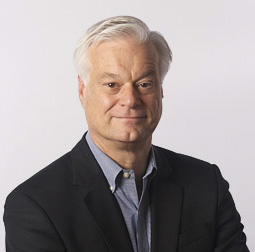News & Stories
Alum values “soft side” skills

During his 18 years as a general management consultant, Stu Pearman (MBA ’94) says he has used the skills he learned at UNC Kenan-Flagler each and every day.
Pearman is a partner and the energy practice leader at ScottMadden, a management consulting firm that specializes in energy, clean technology & sustainability and corporate and shared services. As an adjunct professor at UNC Kenan-Flagler, he also teaches the fundamentals of his profession, from consulting basics to the leadership skills that make consultants truly successful.
“The consultant’s job is helping people think and act differently so that they are more successful,” said Pearman. “When you do that well, you can have a tremendous positive impact on clients and their organizations. The magic is when people say, ‘I have seen the way we did it before and I see the way we do it now. The difference is night and day. And we couldn’t have done it without you.’”
While the work is challenging, Pearman says consulting is also extremely meaningful and fulfilling. With a huge variety of complex projects, the profession offers consultants the opportunity to continually learn and grow.
“The complexity of the business, the uncertainty in the business environment and the pace of change are unparalleled,” said Pearman. “This is a good situation for consultants and an exciting time to practice the profession.”
Pearman credits UNC Kenan-Flagler for teaching him the leadership, teamwork and negotiation skills that are necessary to succeed in consulting. The most valuable lessons were in the “soft side” of business, which deals with interpersonal skills. UNC Kenan-Flagler’s focus on hands-on learning ensured that he not only learned these necessary tools but also had the opportunity to practice them and receive feedback on his performance.
That experience came in handy when Pearman’s work was pitted against that of a more experienced, big-name consultant during his very first consulting internship. He and a UNC Kenan-Flagler classmate were working together to diagnose and fix a sales compensation problem for the US business unit of a national telecommunications company. When the other consultant learned that two interns were working on the same project, he requested that they be fired. Since the pair had almost completed their work and had promised their interviewees they would try to help, Pearman asked that they be allowed to present to their findings anyway. The firm allowed them to do so and ended up adopting most of their recommendations.
As an adjunct professor at UNC Kenan-Flagler, Pearman is working to ensure that today’s students are equipped with the soft skills that he has found to be invaluable during his career. He contributes to the school’s leadership initiative, led by Mindy Storrie, by teaching two sections of an undergraduate leadership course, one for elected leaders and one for fraternity and sorority presidents.
“I can see them growing and learning as leaders during the year. These are applied leadership classes,” said Pearman. “We give them tools and techniques and ask them to apply them on the job. Adults learn by doing. The courses are geared to facilitate that.”
Pearman’s leadership courses also focus on versatility, a trait that he has learned is essential for success. During his consulting career, Pearman has worked on about 150 projects for 50 different clients – each with their own unique characteristics and problems, and he has had to learn to adjust his behavior to give clients what they need to be successful. At UNC Kenan-Flagler, he helps prepare students to handle a wide variety of scenarios they might encounter on the job.
“As a leader, your followers are different. The situations are different,” said Pearman. “The more versatile you are, the more situations and people you can be successful with.”
For Pearman, leadership and consulting go hand-in-hand. Effectively leading and coaching clients to make changes in their organizations leads to positive results that change their businesses and lives for the better.
“We define leadership as engaging and developing committed followers for the greater good,” said Pearman. “I believe you have to want to do that to be a great leader.”